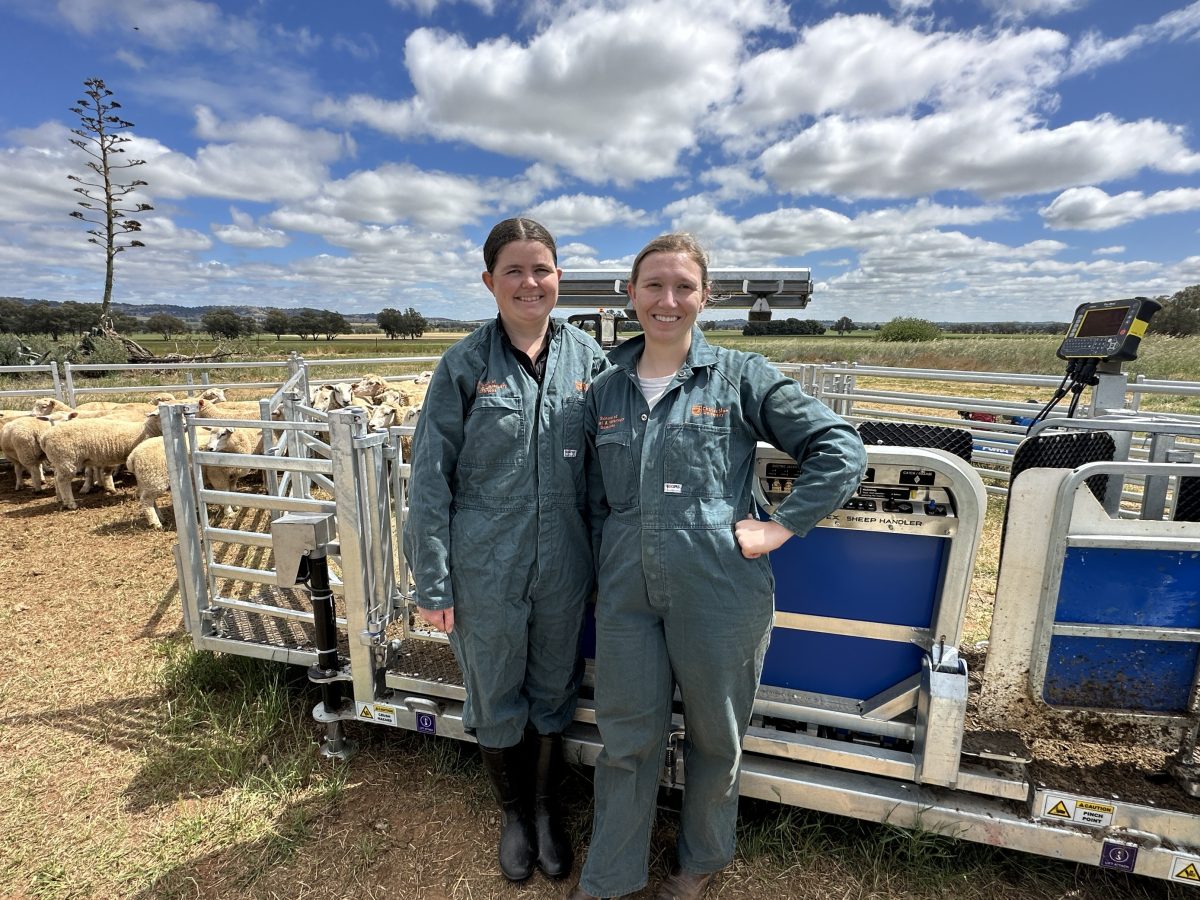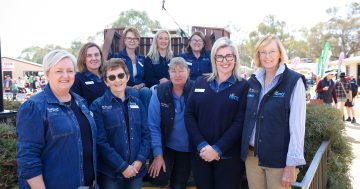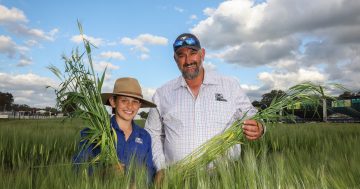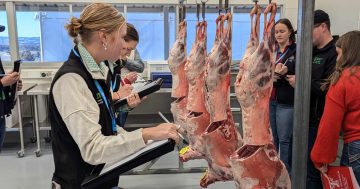
Charles Sturt University students Brooke Wilson and Emma McTavish at one of the nine farmlets. Photo: Charles Sturt University.
Charles Sturt University’s (CSU) new drought resilience farmlets are set to empower the next generation of industry professionals with hands-on experience in all-weather farming.
CSU established nine Empowering Generation Z Drought Resilience Farmlets as part of the funding from the Federal Government’s Future Drought Fund.
Each farmlet has an area of 6.5 hectares, with 50 per cent established pastures and 50 per cent sown to dual-purpose crops. Each farmlet is stocked with 18 composite ewes and their progeny.
Three of the farmlets are designed for conservative practice. Another three are designed for best practice for rotational grazing of lucerne, early sowing of crops and use of drought lots for feeding sheep off the pastures. The remaining farmlets are there for the students to experiment with.
CSU Senior Research Fellow Dr Shawn McGrath said students studying animal science, agribusiness veterinary science, or agricultural science would gain hands-on experience with the farmlets through grazing management, animal husbandry and crop management.
“Students graduating in these disciplines will be future farm and business managers, leaders and consultants,” Dr McGrath said.
“Providing students with hands-on experience through the drought resilience farmlets will mean graduates are well prepared for a future career in agriculture that will operate in a more challenging and variable climate.
“Hands-on experience builds real-world practical skills and will improve student understanding of the concepts. Students will be able to have input into the decision-making and assess the implications of decisions on productivity, profitability and resources.”
CSU veterinary biology and science student Emma McTavish said the farmlets enhanced her learning in recognising different pasture types, livestock management and animal husbandry with sheep.
“This hands-on learning has reinforced concepts learnt in class by applying them in a real-world situation,” Ms McTavish said.
“It will also help me advise farmers about managing their livestock and pastures once I have graduated and will hopefully help them be more productive and profitable.”
CSU will also celebrate National Agriculture Day on Friday (17 November) to ensure students are career-ready at graduation.
Dr McGrath said the university was responsible for celebrating and recognising National Agriculture Day because it had a history of supporting agricultural education and research.
Ms McTavish said the day should be recognised, as Australia had been built around agriculture.
“It is a way of life for many Australians that should be embraced and encouraged, and we should be promoting the development of rural industries,” she said.










